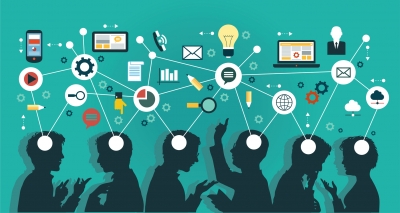Podcast: Play in new window | Download
Welcome to Episode 001 of the Train Your Brain Podcast with Dr. Michael Trayford. This podcast is published every single day with the intent to teach you how to train your brain 365 days a year for a sharper mind.
Specifically, the Train Your Brain Podcast is designed to deliver practical, everyday tips for building the best brain possible. Fear of a declining brain is one of the top issues of our time, and the choices you make determine how well your greatest asset will serve you at any stage of life. And in this debut episode, Dr. Trayford and his producer, Jason Pyles, chat about the definition of brain training — what it is and how it works. Join us!
If you have any concerns regarding the information and applications discussed in this podcast, please consult your physician and a doctor who is experienced in functional neurology. Michael Trayford DC, DACNB is available for consultation by calling (828) 708-5274. Thanks for listening.
Eliminating technology from the bedroom is a very important topic we can talk at great length about. Suffice it to say, all of our gadgets and technology addictions are posing a significant threat to our brain and body health. The biggest reason we know of relates to the effects of artificial lights on our brains. This is particularly true for laptops, tablets and handheld devices. Research has found that LED lighting is suggestive to the brain. The blue light emitted by these types of devices simulates the light outdoors.
This means you could be on your tablet, in bed, at ten o’clock at night and the blue light is telling your brain that it’s light outside. The human sleep-wake cycle is based on our relationship to the natural light in our environment.
When we are artificially inducing daylight through use of these devices, particularly at night, the brain gets very confused. Hormones such as cortisol are produced and start to circulate through the blood stream causing a more alert state. This also causes the body to lack certain hormones (i.e. melatonin) that are naturally supposed to be present before sleeping.
Of course, this isn’t just about smart phones and tablets. This also extends to other electronic devices like televisions and stimulation from radios. All devices should be taken into consideration as it’s not just that blue light tricking the brain into thinking it’s light outside. Other types of stimulation disrupt sleep/wake cycles. Simple things like anticipating a text message, email, or phone call create a sense of anticipation that stimulates the brain, making it hard to fall asleep or stay asleep.
At the same time, there is also a concern that EMF, or electromagnetic field, waves can have a negative impact on the brain.
All of these electronic devices need to be turned off and left in places outside of the bedroom; in the kitchen or wherever they will be used first thing the next morning. This is critically important training for children as all they know is technology and boundaries are becoming less clearly defined as time progresses.
The bottom line is that it’s just not good sleep hygiene to have these electronic devices in your bedroom.
Links for this episode:
Learn more at APEX Brain Centers.com
Read the APEX Brain Centers BLOG
Follow us on Facebook
On Google Plus
Follow APEX Brain Centers on Twitter
And here is the Twitter handle for this podcast: @BrainPodcast365
Visit our YouTube Channel

